12 grim lands, 7 bright spots in LGBTI preview of 2015
Colin Stewart is a 45-year journalism veteran living in Southern…

As debate over LGBTI rights continues worldwide in 2015, progress has been made in at least seven of the 76-plus countries with laws against homosexuality. In another 12 countries, the situation is grim and could get worse.
Below are previews for 27 of the many countries where LGBTI people struggle for respect and equal rights. Each link in this list connects to that country’s summary below.
Bright spots:
- Malawi
- Uganda
- Palau
- São Tomé and Príncipe
- Seychelles
- North Cyprus
- Botswana
- Ivory Coast
- [Editor’s note: Mozambique wasn’t included, but probably deserves to be here too because it has adopted a revised Penal Code that dropped its previous reference to “vices against nature.”]
Grim realities
In the balance
Alternative viewpoints are invited from local activists who have a more detailed understanding of what’s happening in specific countries.
Malawi — arrests end as High Court reviews anti-gay law

The southeast African country of Malawi has stopped arresting people for same-sex intimacy pending the results of the High Court’s ongoing review of the country’s law against same-sex activity. The court is also reviewing the cases of three men convicted in 2011 of violating that law. Meanwhile, though, they remain in prison, serving sentences of 10 to 14 years.
Uganda — newest anti-gay law overturned
Though the situation could change overnight, the prospect in Uganda is brighter than a year ago, at least in the capital.
Uganda’s Anti-Homosexuality Act was overturned in August and, despite outcries from anti-gay legislators, has not been reintroduced in parliament. A draft Prohibition of the Promotion of Unnatural Sexual Practices Bill has been discussed as a replacement for the nullified law, but President Yoweri Museveni has declared that further anti-gay legislation would damage Uganda’s international trade with countries that support LGBT rights.
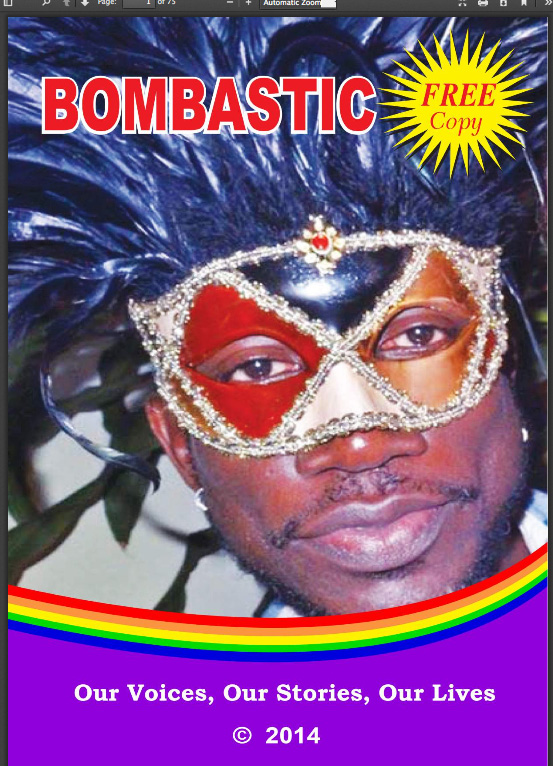
Maybe it’s a stretch to call Uganda a “bright spot,” since homophobic violence remains strong, many LGBTI people lack access to health care because of anti-gay stigma, and others seek ways to flee the country. But all or almost all of those arrested on anti-homosexuality charges under the Penal Code of 1950 have been released and legal action against them dropped. The fiercely anti-gay Inter-Religious Council of Uganda laid off all its staff last summer after losing $34.5 million in funding from the United States. The magazine Bombastic published its first issue in December, with a goal of putting its tales of LGBTI life into the hands of every Ugandan.
LGBTI people are no longer automatically considered to be criminals any more in the tiny Pacific island nation of Palau, which dropped its law against same-sex intimacy early in 2014.
São Tomé and Príncipe — anti-gay law is gone
With little attention from the media until last year, the island nation of São Tomé and Príncipe in 2012 adopted a new penal code that omitted anti-gay provisions of the previous penal code. São Tomé and Príncipe, a Portuguese-speaking nation with a population of about 200,000, is in the Atlantic Ocean west of central Africa.
Seychelles — repeal of anti-gay law promised
The island nation of Seychelles in the Indian Ocean, northeast of Madagascar, vowed to the U.N. Human Rights Commission in 2011 that it would repeal its unenforced law providing prison sentences of up to 14 years for same-sex intimacy. The government has not yet done so, even though Seychelles is one of a handful of nations that have not only anti-gay laws but also laws that prohibit discrimination on the basis of sexual orientation.
Northern Cyprus — repeal of Europe’s last law against same-sex intimacy

This is the first full year in which no part of Europe has a law against same-sex sexual activity. Effective last Feb. 7, the last holdout, the Turkish Republic of Northern Cyprus, repealed its law providing for up to five years in prison for sexual intercourse between men. That law had been challenged in the local Constitutional Court and in the European Court of Human Rights.
The island of Cyprus in the Mediterranean Sea is divided between the Republic of Cyprus in the south, a member of the United Nations, and the Turkish Republic of Northern Cyprus, which is officially recognized only by Turkey.
Botswana — legal recognition for LGBTI rights organization
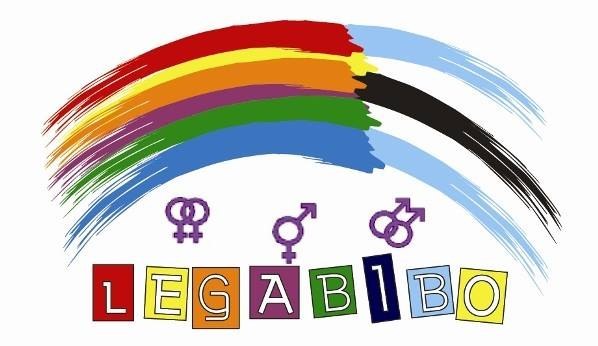
Botswana’s High Court ruled that the local LGBTI rights group has a right to official recognition. The judges rejected government arguments that for years had blocked the registration of Lesbians, Gays and Bisexuals of Botswana, or Legabibo.
They declared that “it is not a crime for one to be attracted to people of one’s own sex” and that “advocacy for legislative reforms to decriminalise homosexuality is lawful.”
In Botswana, at least on paper, same-sex intimacy is punishable by seven years in prison. But the country also prohibits discrimination on the basis of sexual orientation.
Ivory Coast — restoring calm for LGBTI citizens
After a grim start to 2014, this West African nation has made progress in restoring its reputation as an “oasis” for LGBTI people. Ivory Coast, a former French colony, does not consider same-sex intimacy a crime, unlike dozens of countries that were saddled with anti-gay laws in the 19th century after their conquest by the British Empire.
A year ago, anti-gay mobs forced the human rights group Alternative Côte d’Ivoire to suspend its work, which includes AIDS services. After order was restored, the organization found a new headquarters and resumed operations. However, none of the homophobic attackers has been brought to justice, but the Human Rights Commission has promised to investigate.
12 GRIM REALITIES
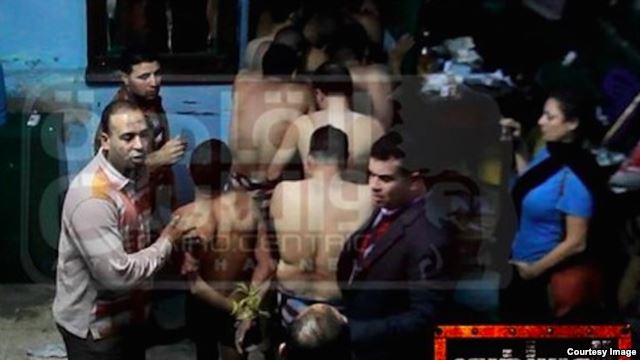
Egypt — politically motivated crackdown
A wave of police raids against LGBTI Egyptians began in October 2013, worsened in 2014, and threatens to continue in 2015.
The raids began after the military ousted President Mohamed Morsi in July 2013 and intensified after the installation of army chief Abdel Fattah al-Sisi as president in June 2014. In addition to its crackdown on the Muslim Brotherhood, other Morsi supporters, journalists, students, and human rights defenders, the al-Sisi regime has ramped up anti-gay arrests as a way to defend itself against Muslim Brotherhood claims that it is soft on homosexuality.
This blog reported 23 homosexuality-related arrests in late 2013, another 35 by May 2014, and 27 or more in the second half of 2014, with the overall total reaching 88 to 129. (The numbers vary widely in various media reports.)
The Gambia — arrests, coup attempt, aid cuts
Yahya Jammeh, the despot who rules the tiny West African nation of the Gambia, moved from abusive language to repressive action against LGBTI people in recent months and shows no sign of letting up. He has often spoken out against homosexuals, whom he says are “vermin,” “satanic,” a threat to population growth, “anti-god, anti-human, and anti-civilization,” but his strong-arm tactics have more typically targeted political opponents.
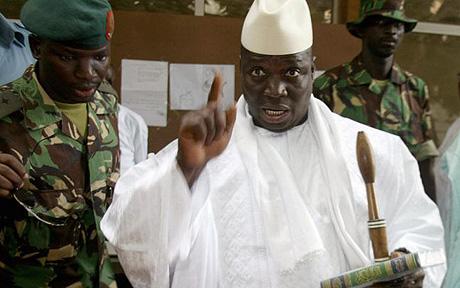
Then, in October, he approved a new law that calls for life imprisonment for “aggravated homosexuality,” which could apply to repeat offenders and people living with HIV. In November, 16 alleged gays and lesbians were arrested, several of them during door-to-door searches by police who reportedly were accompanied by a gay man seeking leniency in return for his cooperation with the crackdown. A further three people were arrested in December. Jammeh survived a coup attempt on Dec. 30, which might provoke him into further repression to appeal to anti-gay public sentiment in the Muslim nation.
A hope for 2015 is that — although Gambian officials loudly deny it — the crackdowns might be eased discreetly to try to win back favor from Western nations that are pressing for an end to Gambia’s human rights abuses. The United States in December dropped the Gambia from a free-trade deal that saves the country about $37 million a year in tariffs. The European Union has blocked 13 million euros ($15.6 million) in aid and is deliberating whether to block a further 150 million euros ($180 million) in aid.
This year likely will be the first full year of repression of LGBTI people under the misleadingly named “Same-Sex Marriage (Prohibition) Act,” which not only prohibits same-sex marriage, but also calls for 10 years in prison for anyone who makes a “public show of same-sex amorous relationship” or belongs to an organization of gay men, apparently even including anti-AIDS groups.
After the signing of that law last January, dozens of LGBTI people were reported arrested and imprisoned, although the details are unclear since news reporting from Nigeria is unreliable. No relief is expected from the upcoming presidential election.
Because of the draconian new law, advocacy for equal treatment for LGBTI people is risky, so Nigerian activists who remain in the country are sometimes silent and fearful. Establishing a unified coalition against homophobic repression has also been a challenge, although the Solidarity Alliance has made progress in that direction.
Still, as Nigerian AIDS fighter Stephen Chukwumah recently wrote in Kuchu Times, last month’s Free and Equal Naija campaign united “a group of LGBTQ activists, lawyers and organizations … with an aim of celebrating human rights day and also calling on Nigerians to end violence and discrimination towards LGBTQ individuals in the society.” He added:
“Organisations like Women’s Health and Equal Rights in Abuja, Improved Youth Health Initiative in Eastern Nigeria and the Initiative for Equal Rights are continuously providing information and services on sexual health and rights to LGBTQ people even in the face of serious backlash and arrests by law enforcement agents as the new law also prohibits individuals and organizations from ‘aiding and abetting’ LGBTQ people with a penalty of up to 10 years imprisonment.”
In Africa’s most populous nation, with an estimated 185 million people, other bright spots include an appeal for restraint by a Roman Catholic archbishop and court action by a Nigerian expatriate who challenged the new anti-gay law.

Roman Catholic Archbishop Ignatius Kaigama stated in October that he favors the ban on same-sex marriages, but opposes the imprisonment of anyone on the basis of their sexual orientation. “We would defend any person with homosexual orientation who is being harassed, who is being imprisoned, who is being punished,” Kaigama said. London-based Nigerian LGBTI activist Davis Mac-Iyalla responded by urging Kaigama to follow that compassionate talk with compassionate action on behalf of victimized LGBTI Nigerians.
The suit by United Kingdom-based Teriah Joseph Ebah was dismissed in October, but he has appealed.
As Nigeria prepares to vote for president on Feb. 14, it apparently faces a choice between bad and bad — former military leader Gen. Muhammadu Buhari, a Muslim supporter of repressive sharia law, and incumbent President Goodluck Jonathan, the Christian signer of the repressive Same-Sex Marriage (Prohibition) Act.
Russia — repression and attacks, but persistence too
Same-sex intimacy is legal in Russia, but the regime of Vladimir Putin stifles the work of LGBTI rights activists by labeling them “foreign agents” and by enforcing the 2013 law against “homosexual propaganda,” which prohibits positive statements about minority sexual orientations that could be overheard by children.

In addition, the Russian government routinely ignores homophobic attacks on LGBT rights protesters.
But despite the harassment, LGBTI activism continues, most recently in December’s Golden Enema awards for outrageously anti-gay statements. As in 2014, many Russian cities are likely to see celebrations of the International Day Against Homophobia and Transphobia on May 17, 2015.
Zimbabwe — violence and harassment
In line with President Robert Mugabe’s scorn for LGBTI people, sexual minorities in Zimbabwe are the victims of a “prevailing climate of violence, harassment and impunity,” in the words of the LGBTI rights group GALZ (Gays and Lesbians of Zimbabwe). Most recently, 35 members of the organization were injured during a year-end event that was invaded by a dozen armed men who beat up participants with logs, iron bars, empty beer bottles and fists. There are no signs of change any time soon.
India — hundreds of arrests; judges and legislators delay

Legislators in India hope that they won’t be forced to vote on whether to repeal Section 377, India’s law against sexual intercourse between men. But while the government delays, LGBTI citizens are suffering. According to statistics compiled by the Home Ministry, at least 587 arrests were made in the first 10 months of last year under Section 377, which applies indiscriminately both to consensual sex and to same-sex rape.
That law, imposed on India by the British Empire in 1861, and retained at independence in 1947, was overturned by the Delhi High Court in 2009, then reinstated by the Indian Supreme Court in late 2013. The Supreme Court claimed that only about 200 people had been prosecuted under Section 377 since the mid-19th century.
The Supreme Court is considering whether to revisit its decision, and the ruling Bharatya Janata Party has announced that parliament won’t take up the issue until the courts are done with it.
In the meantime, protests against the law continue. In October, more than 1 million people called a toll-free hotline to call for the repeal of Section 377 after seeing an Indian talk show about the law.
Middle East and North Africa — anti-gay arrests remain routine
Arrests and convictions under anti-gay laws remain common in Saudi Arabia, United Arab Emirates, Lebanon, Iran and Morocco.
According to this blog’s country-by-country tally in August 2014 of homosexuality-related arrests, detentions and prison sentences in those countries — where news reporting of such incidents is rare and unreliable — the totals were as follows:
- Saudi Arabia — an estimated 22 in prison, according to specific reports; hundreds of other cases cited without any specifics.
- Morocco — 8 specific cases of people imprisoned; dozens more people reportedly arrested and tried.
- Lebanon — 7 people in jail awaiting charges; 20 more released on bail awaiting court action after all 27 were arrested at a Turkish bath during an Aug. 9 raid by Lebanon’s national police and security force.
- United Arab Emirates — 2 people in prison, according to specific news reports. Beyond that, unknown.
- Iran — 24 reported arrested in a specific, reported raid. They are now awaiting trial or have fled the country. Beyond that, unknown.
The lists do not include the dozens of gay men who reportedly have been killed by death squads in Iraq without any government interference and sometimes with help from police.
Indonesia — expansion of sharia law

In September, the province of Aceh in northwest Indonesia approved a bill that converts strict Islamic Sharia rules on morality into the province’s criminal law, including a punishment of 100 lashes for homosexual activity and extramarital sex.
The provinces of West Java, South Sumatra and West Sumatra are also considering similar moves, according to Indonesia’s GWL-INA network of LGBTI people and men who have sex with men.
Officially, the new laws will take effect at the end of this year for non-Muslims in Aceh, but the LGBTI community is already a target of harassment by sharia police and other residents. In the capital city of Banda Aceh, members of the gay rights group Violet Grey burned documents outside their headquarters, concerned that sharia police would raid them.
8 IN THE BALANCE

The British Empire’s former Caribbean jewel is not only known as the supposedly tolerant home of “One Love” reggae, but also is described as the most homophobic place on earth.
Violent harassment of suspected homosexuals is common, to the extent that a the plaintiff in a lawsuit challenging the country’s anti-gay “buggery law” dropped out in August, stating, “I am no longer willing to gamble with my life or the lives of my parents and siblings.” Prime Minister Portia Simpson-Miller speaks of repealing that law, but has not brought the issue before parliament.
Dozens of LGBT youths lived for two years in a drainage gully in New Kingston after being expelled from their homes for being gay, then rousted out of abandoned buildings. Police repeatedly raided the site, but each time allowed the youths to return there. That ended just before Christmas 2014, when police conducted a final raid and then sealed off the gully, leaving the youths homeless again. Many people, including the local police superintendent, have proposed establishing a shelter where the youths could be housed and trained for gainful employment. Advocates have tried to raise enough money to open such a shelter under the name of Dwayne’s House. But nothing has yet come of those plans.
Parliament is reviewing the Sexual Offences Act, which incorporates the section of Jamaican law that calls for 10 years in prison for the “abominable crime of buggery” — in other words, for anal intercourse, as well as other criminal sanctions for any form of male same-gender intimacy. The thought that parliament might repeal that section of the law led the conservative group Jamaica Churches Action Uniting Society to organize a demonstration by 25,000 people against the so-called “homosexual agenda.”
Upcoming in 2015: Court action on a lawsuit by Jamaican activist Maurice Tomlinson against television stations that refused to broadcast a public service announcement advocating tolerance for LGBTI people.
Belize and Trinidad — court action under way
Jamaican activist Maurice Tomlinson is also scheduled to appear before the Caribbean Court of Justice this month in his lawsuit against the immigration laws of Belize and of Trinidad and Tobago, which prohibit the entry of homosexuals. After this month’s hearing, the court is expected to set a date for the trial to begin.

In Belize, the only Central American country that outlaws same-sex intimacy, LGBTI rights activist Caleb Orozco is challenging the constitutionality of the law that makes “intercourse against the order of nature” punishable by 10 years in prison. The Supreme Court of Belize heard arguments in the case in 2013, but no ruling has yet been issued.
In Trinidad and Tobago, Prime Minister Kamla Persad-Bisessar has said that her government wants to end “all discrimination based on gender or sexual orientation,” but under Trinidadian law, anal intercourse remains punishable by 25 years in prison; other same-sex relations are punishable by five years in prison.
Police in Cameroon continue to arrest citizens for appearing to be homosexual, but government officials seem a bit more willing than in the past to intervene and restore liberty to detainees. Public harassment and mob violence against sexual minorities remain a problem. The activist group Camfaids continues its outreach to LGBTI prisoners.

The ongoing upheaval in Ukraine has led to increased repression in the eastern part of the country, controlled by pro-Russian dissidents, and in formerly Ukrainian Crimea, seized by Russia. Many LGBT people fled from those areas and some found temporary shelter near Kiev in an apartment managed by the LGBT support organization Insight.
Homophobia remains strong in Ukraine, where in 2012 and 2013 the parliament came close to passing a law like Russia’s ban on homosexual “propaganda” and where the planned 2014 pride parade was canceled when police said they could not protect marchers.
Also in 2014, Ukraine signed an agreement creating closer economic ties to the European Union, but European leaders allowed the country to opt out of the the usual prohibition against anti-gay discrimination.
That decision put the LGBT community back to square one, Insight leader Olena Shevchenko said last summer.
More recently, though, the Ministry of Social Policy has proposed a revised Labor Code that would prohibit job discrimination based on sexual orientation.
Kyrgyzstan — heading toward Russian-style repression
The parliament of Kyrgyzstan in central Asia is working toward passage of an anti-“homosexual propaganda” law that would be even more repressive than Russia’s. In October, a legislators voted 79-7 for the proposal, which would outlaw all LGBT groups operating in the former Soviet country.
The local LGBTI rights group Labrys continues to seek seeking international support in opposition to the bill, which still needs two votes in parliament and a presidential signature before becoming law.
Zambia — LGBTI citizens: a tempting target for anti-gay politicians
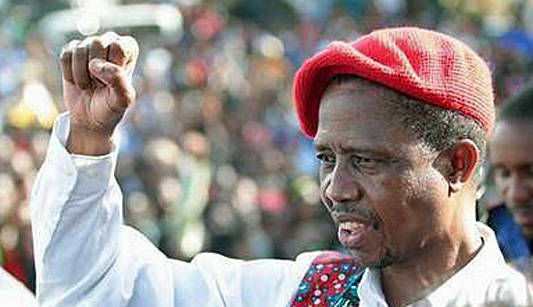
The south African nation of Zambia has moved past its great Gay Scare of 2013 and 2014, when public officials urged citizens to report homosexuals to police, AIDS fighter Paul Kasonkomona was arrested and later acquitted for suggesting the repeal of Zambia’s anti-gay law, and two young men were imprisoned for 14 months on homosexuality charges until their acquittal last July.
The next challenge for the widely homophobic nation is the campaign leading up to the Jan. 20 election that will choose a successor to President Michael Sata, who died in October.
Ruling party candidate Edgar Lungu of the Patriotic Front has made clear that he still rejects gay rights, but it remains to be seen how nasty the political campaign will be. Lungu has already fallen to the temptation to use assertions of homosexuality against his political opponents. In November, he accused newspaper writers of being gay after they suggested that he drinks too much. In December, a prominent Patriotic Front supporter accused a new political party of using LGBT symbols and colors, which suggest it would enact gay-friendly laws. Supporters of the new Rainbow Party say its rainbow symbol merely refers to its multiracial values, not to gay rights.
Malaysia — gains for trans women, not for politician

Transgender people in Malaysia have reason to hope for greater freedom to express their gender in the wake of several court actions in 2014. In June, 16 trans women who had been arrested in Bahau for allegedly violating the Malaysian sharia law against “men posing as women” were released after their fines and legal costs were paid by supporters organized by Justice for Sisters, an organization supporting LGBT rights in Malaysia. In November, an appeals court in the city of Putrajaya ruled that three trans women should not be charged with “impersonating” someone of the opposite gender.
Separately, legal wrangling continues over political opposition leader Anwar Ibrahim, who was put on trial for a second time on sodomy charges in 2010, was acquitted in 2012 and saw his acquittal overturned in March 2014. Same-sex intercourse is punishable by up to 20 years in jail in Muslim-majority Malaysia.


‘I am scared for my life’: Surviving Uganda’s harsh anti-LGBTQ law